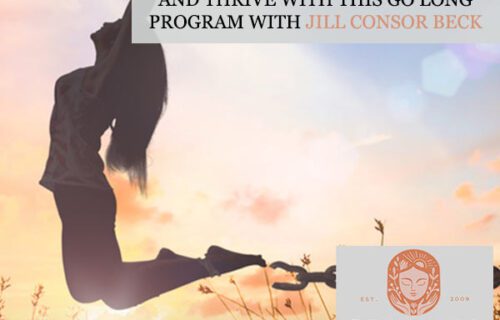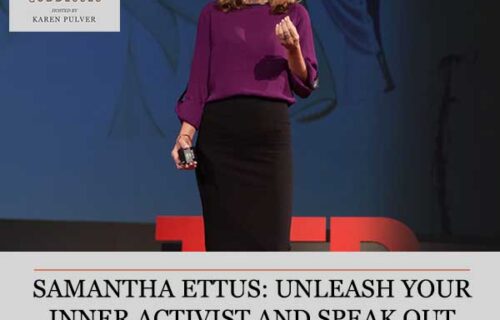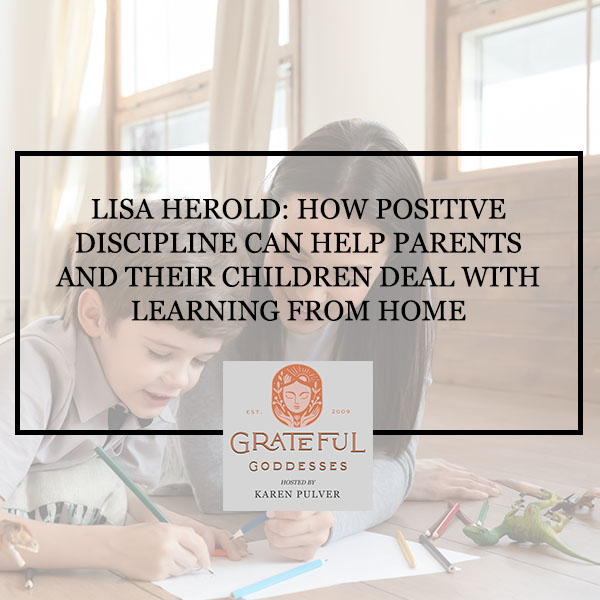
Lisa Herold: How Positive Discipline Can Help Parents And Their Children Deal With Learning From Home
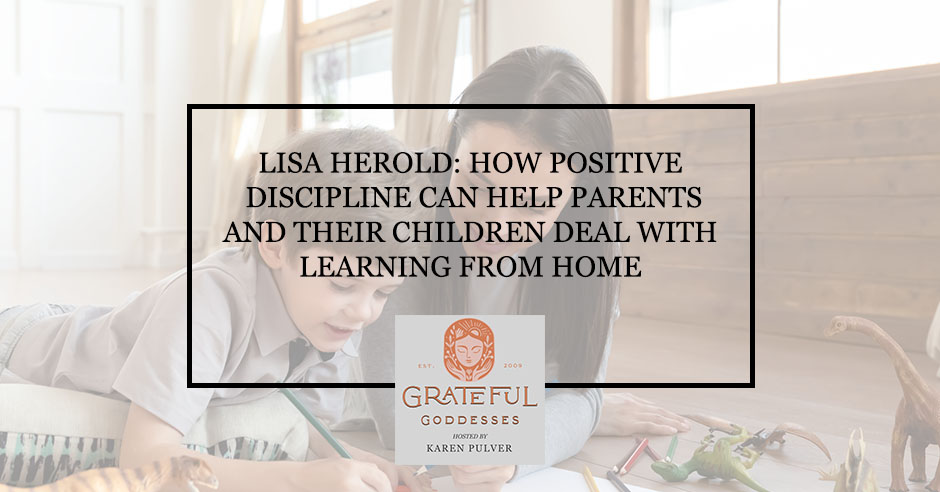
Since the pandemic, there were many changes that people had to cope with—one being learning from home. It’s been a struggle for a lot of people, especially the students, teachers, and parents. Today, Karen Pulver and the goddesses are joined by Lisa Herold, a certified positive discipline trainer. She shares her thoughts about positive discipline and how it helps parents work with their children doing homeschooling. Lisa describes positive discipline as a method to help children and young adults learn life skills through relationships and mistakes. She points out the importance of allowing the kids to be in touch with their emotions and experience and move through these feelings. Lisa says it is also crucial to validate their feelings while also being aware of our own emotions in order to not reach the point of burnout.
—
Watch the episode here
Listen to the podcast here
Lisa Herold: How Positive Discipline Can Help Parents And Their Children Deal With Learning From Home
Remote Learning, Self-Care
We are still going through COVID. Many of our children and young adults are still in remote learning. One of my daughters who was away at college came home for a little bit because of COVID and the lockdown and what’s going on. She has been informed that she has to leave her dorm and cannot return right now. We have to figure out what to do. I have two young adults in my home learning remotely. Needless to say, it can be a little challenging. I brought along my “Do not disturb, podcast in session,” which I normally hang on my door. It’s my way of saying, “Please don’t bother me.” Even though my children are older, they can knock on the door because they want to use this room or get their forgotten charger. Everything’s a little crazy. Trying to manage that and your feelings about everything that’s going on in our world right now can be quite challenging.
Our guest is Lisa Herold. She is a certified positive discipline trainer and empowering people in the workplace. She’s a facilitator who provides leadership training and consultation to schools, homes and businesses. Over the past 25 years, she has taught in the primary, intermediate and middle school levels in both public and private settings. Lisa serves as Director of Parent Engagement and Positive Discipline at a school in Chicago where she is a member of the leadership team. Lisa is going to help walk us through some of the challenges that we are facing as educators and as parents of young children, middle school and young adult children, and how we can help them through this challenging unprecedented time with different practices with school and socialization. Lisa, welcome to Grateful Goddesses.
It’s important to be in touch with our own emotions and understand what we’re feeling. Share on XThank you, Karen. I’m honored to be here. Thank you for having me.
You are the Director of Parent Engagement and Positive Discipline. Can you elaborate a bit more about that position?
This position is very unique. I’ve been working at the school for many years and when people asked me what I do, it was difficult to say because there were so many things that went into this position. It’s teaching social-emotional skills for teaching parents, parent workshops and leading faculty professional development. The other thing that I do is a lot of coaching for parents and teachers. When something comes up, a discipline or something, is happening in the classroom, I’m able to coach with them and help them through their challenges.
That’s at a school here in Chicago. Your job has changed somewhat back in March 2020 because of the pandemic. Can you walk us through a little bit about those changes and how you pivoted?
It was difficult for everyone. It was especially difficult for me because everything that I do is within the school building. It’s a thriving environment, things are moving, running around all day and all of a sudden, everyone was home. I was trying to help parents and trying to reach out to see what they needed. What I learned at the time was that they didn’t have the capacity to come to a workshop. We wanted to talk about remote learning and what would be helpful. They were so overwhelmed that they didn’t have the space for that in their day, in their mind and emotions.
What I started to do was call families and talk with them individually. I learned a lot about what was happening at home and what the struggles were. I was able to help in that way, but it was a big loss for everyone. It’s such a big change and now people are more interested. They have the need. We’re going to be doing this for a while, on and off. Even if you’re at school in person, there are times when we’re off for remote learning for a period of time. Like everyone else, it’s being flexible and taking things as they come, one day at a time. That’s all we can do right now.
You’re an educator yourself. You taught primary and middle school. How did you shift to do the job that you’re doing now?
In my last position of teaching, I was teaching Spanish in elementary school and I was teaching pre-kindergarten through eighth–grade Spanish. There were a lot of vibrant students. I had something with the younger children. The way we started our class was, “Cómo estás?” They would tell me everything that was happening. They’re like, “My mom is on a business trip and my dad is home.” I started to listen to their stories. Also, being a parent myself, I became aware of the stress and pressure that people were under, and everything that was happening during a time when we weren’t having big problems in the world. It was just the pressure that was put on everyone.
I was struggling with that a little bit. I tend to try and problem solve but I didn’t quite know what to do with it. I was invited to go to a positive discipline in the classroom training. For me, that put everything together. It was the epiphany that this is what we need to do to come together, solve our problems and learn from one another. I started teaching parent workshops at that school. I started to branch out into other schools, and work more with parents and teachers.
What does positive discipline mean to people who are reading? In my class, I teach pre-school. I do a lot of positive reinforcement and encouragement. It’s always not looking at what they’ve done wrong but looking at what they’ve done right. Is that what you teach parents?
Yes. Encouragement is a major component of positive discipline. It has to do with encouragement, the strength that we have in a community, building the community, and that all learning happens through relationships. As you teach young children, you know that we can’t be learning if we’re not in a relationship and we don’t feel safe. It’s that encouragement, community and learning from our mistakes.
Getting back to COVID, as a parent myself, my kids were so easy to pick up on my emotions if I was having a bad day or something. Now we look back and we’re like, “I wish I just had a spilt coffee or something.” There are greater challenges that we’re all going through and we’re trying to put on this happy face. It’s like that commercial with a happy face to your kids. How do you juggle that? How do you teach parents to do that? Is it about being truthful and saying, “I don’t know if this is going to end or how long this is going to be?” Is it about putting on that smiley face?
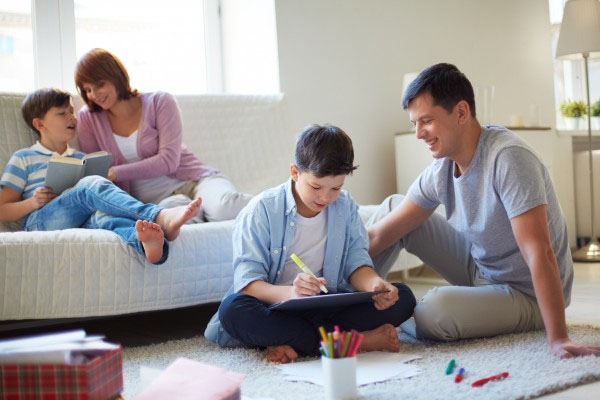
We need to be honest and in touch with our feelings and our emotions because even if we have that smiley face, children know and you know that they know and sense that it’s not real. We need to be in touch with our own emotions and learn what are we feeling. I’m learning that now as an adult. I didn’t know in the past even how I was feeling. I would act a certain way, we keep going and we do all these things because we’re strong. It’s important to be aware and experience our feelings, move through them and be able to regulate. That’s teaching the children that they will have a feeling, then we can help them validate their feelings and regulate. If we don’t do that, we succumb to burn out and we can’t function. To me, one of the most important things that we can do right now is to be in touch with our feelings.
It’s always about putting that oxygen mask on first to take care of ourselves. I’m teaching a pod of preschool kids and I’m amazed at how much they know about the virus. They’re like, “We have to wash our hands.” They don’t seem scared so the parents are doing a great job talking about, “As a matter of fact, we have to wear masks and we have to wash our hands so we don’t get sick.” It’s wonderful that they’re doing that but not everyone can find that balance because we don’t know what’s going to happen and we don’t know how long and the effects. It’s being honest, I agree. I’m going to invite our Featured Goddesses to continue with this discussion. We have several questions that we’d like to ask you. I’d like to start first with Alyssa.
I have older children and I worry about how this affects just like the moms of young kids are worried about their children. I would love to talk to you about how you’re talking with parents and your fellow educators about how to keep kids engaged. It seems like hours of looking at a screen. I know that I certainly couldn’t do it. How do you coach parents as well as the teachers to keep kids engaged? My part two of that is, what about kids who are a bit older even like high schoolers? It’s hard enough sometimes to keep them focused and engaged in a classroom but staring at a screen all day is that much harder.
This goes for everyone. One of the things I noticed when I was talking with parents was that they were so anxious that they weren’t doing things exactly as the school does them. I was talking with a first-grade mom. She was upset because she didn’t know about the sneaky E. She said, “I don’t know about the sneaky E.” I said, “You understand that when there’s a vowel, there’s an E at the end of a word and it makes the first vowel a long vowel. You understand that it’s okay that you’re not saying it the same way.” We have this pressure on ourselves as parents that we need to be the school teacher, when in fact, we are the first teacher of our children and we know them intimately. The other thing that parents were saying was that they were learning a lot about the learning style, things that they never would have known had they not been home.
Being aged is all about the actual learning not so much about, “We have to finish this worksheet. We have to get this work done.” When we look at things as more of a task, that becomes a barrier to learning and relationship because it puts stress on the relationship. I’m not saying that we don’t have to do the work, but what are the things we can do? For instance, asking and being curious about it, “What did you learn from that? I wonder why your teacher asked you that question. Tell me the things that you already know about that.” It’s finding other ways to bring that learning to life. Are you a teacher as well, Alyssa? I know some of the goddesses are teachers.
I am not.
Being engaged is the actual learning, not so much about getting things done. Share on XThat hang-up that people have like, “I’m not the teacher,” is something that we need to change. It’s talking and putting a schedule together in a routine and having a lot of input from the child. It’s interesting that you mentioned the older kids. People are saying that they are having the most difficult experience. Everyone’s having a difficult experience in some ways. Middle school and high school children are having a difficult time because everything about their lives is about their friends, their relationships, creating their identity and moving away from their parents. They are not in the environment where they are receiving what they need, socially and emotionally, from their classmates and friends.
In the spring, we had kids at school who were extremely good students who stopped doing their work. They didn’t do it. This is because there were a lot of feelings going on of shock, grief and all of these things that are happening. To your point, remote learning can be difficult and everyone is doing their best. Teachers and students are doing their best. We need to look outside of, “What’s the grade for this?” “Should points be taken off from an assignment when there are people setting fires around us?” If you think about all the things that we live through, especially in the beginning, it’s difficult. We need to be flexible and look at what’s happening under the surface for middle–schoolers and high–schoolers. To me, that’s what it’s about. If we can’t regulate our feelings and we’re in a lot of pain, it’s not possible to learn. We need to address that before we can accomplish things.
I see Camille tearing up. Would you like to share what you’re going through?
You hit me in the heartstrings because before coming on, I have a middle-schooler so everything that you were saying hit hard because I was asking her, “By the way, I’m going to be speaking with this educator. Do you have anything that you would like to speak about?” Her first year of middle school got cut in half because of COVID. It’s everything you said. She missed her friends. She would be willing to take the risk because she missed hanging out with her friends. A lot of her friends don’t have devices of their own where they can FaceTime and engage socially.
There’s been so much focus on getting the institutions prepared and all of that but there hasn’t been a lot of focus on how do we get our children prepared for the idea of going back to school. We’re both ADHD, full disclosure. Remembering to not hug people and keep your mask on is a lot of steps. I would love for her to be able to go back to school and be able to have that engagement again and socialization. Since that’s not an option, I’m wondering what you’re telling parents as far as how to make sure that somehow, we’re able to bring that peace to our child because I have an only child and I’m an only child too. I like being alone so I can’t relate.
It’s more restorative for you. She is communicating with some of the friends through the device. Are they able to go to the park to go out for a walk?
Sadly, the friends that she’s speaking with are her best friends who all moved away before middle school anyway. It’s like, “I have time. We’re in the same timeframe. Since we’re all home, we can communicate.” One of them is her cousin that is two hours away. It’s luck of the draw that neither of them lives nearby.
Is there family? Does she have cousins?
No.
Understanding what’s happening and validating her feelings, “I understand that you miss your friends. This is painful for you. Even though things aren’t normal right now, what are some things that you can do with what you have? Can you maybe do a painting project? What are some activities that we can do?” It’s important to validate her feelings and know what she’s going through. As parents, the ability to say, “I know what you’re feeling and I know what it feels like to be you at this moment,” is so powerful. It won’t take away all the pain but it’s comforting and it’s teaching empathy. It’s a life skill.
What I want to do now is fix it and this is what we want to do. I want to take you and say, “I want to fix it.” That’s what we want to do as parents and that’s why this is so difficult because we can’t. We can’t fix it and it’s not easy. One of the most powerful things we can do is to be in touch with feelings. For you to say, “It’s hard for me to see this. This is difficult for me because I know this is what you’d like to be doing. It’s easier for me to be here. I’m happy that you’re with me.” Maybe it’s this idea of, “What do we have right now and what we are grateful for.”
I have a big magnetic board. I cut up little pieces of computer paper. In the spring, when we were all home together, every night, I pass everyone 2 or 3 little sheets of paper and you would write what you are grateful for. It might be coffee or something small. I stuck those on the board so as you leave the household or come back in, you have to see those things. It has to be done in a way that’s not saying, “You should be grateful for these things.” It’s a way to notice the things that we do have but also be aware of the challenges.
You brought up a good point too because she had also stopped doing her schoolwork as a protest of it being too much and overwhelming. A lot of parents are now becoming the guidance counselor, the teacher, the cook, the nurse and so many others. We’re carrying so many hats that maybe we would notice that as being a sign of, “I’m overwhelmed. This is the emotional reason why I stopped doing my work,” as opposed to it’s too difficult or whatever. Anything you can give us as parents to recognize when this is a disciplinary thing, although positive reinforcement, or whether this is something emotional that is going on and they’re withdrawing from doing their schoolwork because of it.
I would pay attention to what would be helpful in this situation. Positive discipline is all about teaching life skills and what would be helpful. The whole idea of consequences in this situation is, is that helpful? Is that going to help her grow? Is that going to create more anger, tension, retreat and more of this feeling of revenge? As parents, when we’re struggling, we’re trying to see, “What do I do to teach this life skill or to teach this thing?” Often, we go to that place because that’s all we have and that’s all we know. There are millions of encouraging tools that we can use and try that are much more helpful.
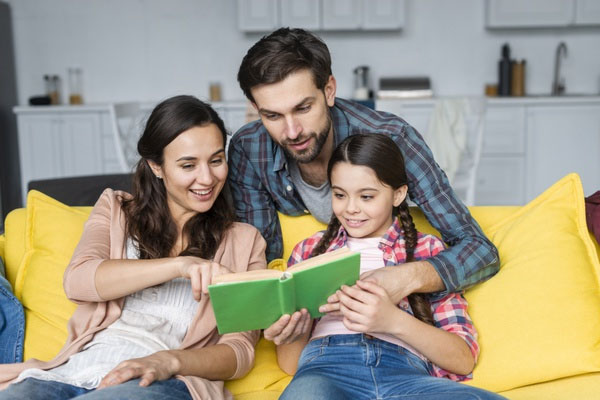
Let me give you an example. Saying, “It sounds like you might be worried that you can’t see your friends for a while. I’m wondering, what are some ideas for some other things we can do?” If you notice that while she’s working, if she does complete a task, and this is piggybacking on what Karen was saying on the positive encouragement and saying, “I noticed that math lesson was a struggle.” It’s okay for her to struggle through something, “I noticed that was a struggle but that shows perseverance. You found a new strategy to do that.” It’s being specific when you do see something happening and being more of the guide rather than the enforcer of things. We need to do that as parents because we’ve never been in this situation before when we are working with school learning. It’s noticing what she’s capable of, which is a lot and being more of a coach and a guide.
It’s interesting because my older daughter is in grad school but she’s home. She came downstairs one day very upset because she said she was trying to ask a question. Out of twenty students, six were remote at the time. She said, “I was trying to ask a question I kept raising my hand on the Zoom but I couldn’t unmute and the professor continued talking.” I started to try and fix it. I tried to tell her to be bolder and you have to shout and wave. I realized that if she was away at college as a grad school student, I would not be doing that.
I feel even with all ages, this can happen and there are so many other factors to remote learning now that the kids have to be taught. Whether it’s being seen, asking a question or participating. I too taught remote learning for three-year-olds when the pandemic started. For a teacher, it was like putting on a show. I could see the kids losing their attention and I’d be like, “Hey,” with puppets and singing. I had to change for kids to focus. It’s been difficult all around.
We’re all here and we’re all learning that as the teacher and the parent. The most valuable thing we can take away from this is it’s okay that we don’t know how to do this. No one does. We‘re all learning as we go along.
When I went to bring my other daughter home. I saw kids wearing Zoom University sweatshirts at her college. Camille, you need to get your daughter Zoom School because that’s what it is. Joelle has a question now.
Piggybacking off of the piece about adolescence in particular. One of their primary developmental tasks is separating and individuating, who am I outside of the family system? For so many kids who are 100% remote, that whole avenue is cut but not completely because there’s Zoom or FaceTime. An important part of the avenue of development is being physically away from family, out of the house, taking risks, and exploring away from the home base. I’m curious what your thoughts are about social regression. What is this doing developmentally, particularly to those 10, 11, 12-year-olds? Like Alyssa and Karen, my kids are college and beyond. I’ve got two nieces and a nephew. I think about how social they are and how much of their life is lived away from home and how important and rich all of that is to their development. I’m curious about what you’re seeing and what your thoughts are around that.
If we can’t regulate our feelings and we’re in a lot of pain, it’s just not possible that we are able to work. Share on XI’m sure you’ve seen this, people have different comfort levels with gatherings. Some kids are playing outside of the neighborhood, some kids are going to the park, some parents are getting together with the same people. It’s different for everyone. This is temporary and we need to maintain our hope and say, “I know this is difficult. This is not forever.” I would say, what are you comfortable with that is something that maybe is outside of the household? If you’re not, then that’s okay. We’re going to be using the screens. For the long-term effects, we don’t know anything yet. To be honest with you, I’m glad we don’t because we need all the strength we can get through every minute of what’s happening now.
What I’m looking at is what are the things that they are gaining? What are the skills that they’re learning that they maybe would not have if they were in their normal lives? For instance, the independence of learning from home. Some kids are engaged in service projects, they’re reaching out to the community, and there are all these other things happening. It’s such a change. What I noticed for those kids who are in school is we’ve said to these kids for years, “Share everything. Be kind.” We say all these things, and now we’re saying, “Don’t share.” Managing all of that is so much. I’ve also noticed that what it takes to get through the school day mentally is exhausting, whether you’re in person trying to socially distance or online. I have noticed that some of the socialization in the adolescent ages that you mentioned are tired. Maybe they don’t want to do the things that they had done in the past. It’s all over the place. Honestly, I’m noticing what’s happening and trying to learn from it.
I’m not a formal researcher but that’s what I do. I listen to what’s happening. I wish I had an answer, but I don’t. We’re managing it the best that we can. If there is a caring and strong relationship at home, that’s what we have and that’s powerful. I was talking to someone about how as Americans, we don’t typically have our children home after college and a lot of that is happening. It’s interesting to see the benefits of that. I’m looking at, let’s be real about the challenges but also what are we learning and what are the benefits of this, and how is this going to help us going forward?
We were talking about introverts and extroverts. The extroverted child who gets attention at school from their peers is not going to get that out necessarily on Zoom unless they’re doing little things. It is funny because as I’m telling you this, my sister who’s also a teacher said she was teaching her class and you can change your name. One of the kids kept changing his name and it was driving my sister crazy because everyone was laughing. That was his way of getting attention. They will find ways as I talk about it. The introvert who doesn’t want to be looked at. On Zoom, we can focus on a person. Personalities have to be shifted during this time. I also hear you about the benefits of my two daughters being at home. One is milking it, loving it, sitting with us at dinners, going for walks and enjoying it, while the other is like, “Get me out of here.” I see both sides.
The one who was like, “Get me out of here,” is she the one that came back? Was she away?
No, she’s the one at grad school and I don’t blame her. She wants to move on out so we have to figure that out about her possibly going back. There are lots of factors. It’s hard to do that with her age. It could be because she’s older. Alyssa, you have some questions now to ask Lisa.
We’ve talked a lot now about the social and emotional wellbeing of kids, introverts and extroverts, but I wanted to get into academics a little bit more. It seems to me that there are kids who in a live classroom setting would feel free to raise their hand asking a question saying, “I’m confused.” In the Zoom setting, those same kids may be reluctant to do so. I have some friends with middle–schoolers. I was talking to one who said, “My son doesn’t want to ask during Zoom.” It takes that much more to put yourself out there and say, “I don’t get it. I don’t understand,” or whatever.
If you’re sitting in a classroom, you can look to your neighbor and if they also look confused, you’re like, “Maybe I’m not dumb,” or whatever you might think as a middle–schooler. You think, “We’re all confused so I’m going to raise my hands.” I feel like there’s this risk that kids can fall behind. I worry sometimes that in a Zoom setting, a teacher wouldn’t necessarily know that. In a live setting, you can look to a kid and say, “I’m not sure my message or what I’m teaching is coming across loud and clear.”
I worry about kids and I would love to get your thoughts on this. Teachers are working so hard now and it’s hard to ask that much more of them, but how can you tap into each kid individually under the circumstances and make sure that they’re moving at the pace that they should be? There were all these kids who have learning differences and have all these extra resources that are available to them in a live in-school setting and how are those kids getting that extra help? Any thoughts on that to allay all of the parents’ fears that their kids are keeping up on where they’re supposed to be?
There are ways in which teachers can. To me, it’s all about connecting the community. We can do a quick share. If I’m a teacher, I can do a quick share around it. Typically, we would be sitting in a circle. How are you feeling about how school is going so far? One-word answer. There are ways to do these little check-ins, socially and emotionally, which set that connection. Especially at that age, they are nervous. I don’t like speaking up on Zoom. Sometimes I get into a meeting and it’s so awkward. It’s so different. That’s the nature of what’s happening now.
I would not hesitate to check in with the teacher and say, “What are you noticing? What are you seeing? This is what I’m seeing at home.” Sometimes as parents, especially now, I do this. I worry about something that maybe that’s happening and maybe it isn’t happening. You could ask the teacher or you could check in with the child, “What are you learning? How are things going? Tell me about what you learned in math today? Do you feel comfortable?” Asking those questions and maybe problem-solving together, “When there’s something you want to say and you don’t feel you’re getting called on, are you allowed to use the chat?” You’re trying to build the skills together and problem-solve together, “What are your ideas and some other ways that you might be able to communicate? I understand you might be nervous about it. What are some other ways you can show you understand?” Maybe it’s writing yourself a note in your journal.
Look at the learning and look outside of what’s happening on the screen because I agree with you. It’s more confining. You have to sit and look forward the entire time. Even if you’re in a room, you can move a little bit or shift in your chair. This is not forever. It feels like it is now that we’re in it. We just need to get through it and cope with it the best that we can. In the long run, if we keep working on these social-emotional skills, kids will have what they need to catch up on academics.
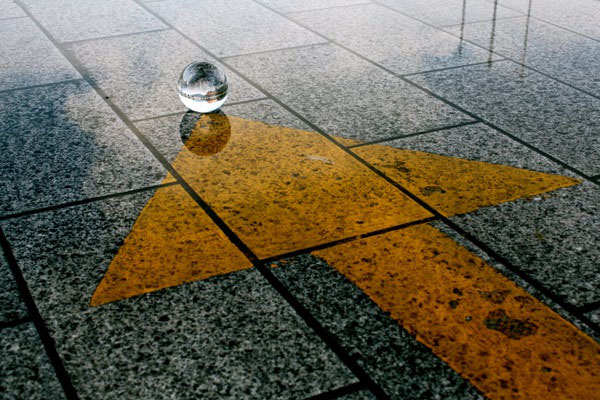
Everyone is in the same boat now. Maybe we need to rewrite some of the curriculum. I’m not seeing that happened. I’m seeing kids learning remotely and in person even with all these obstacles in place. It’s incredible to me how resilient they are and that they are still learning. I’m astounded and that’s what I’m paying attention to. Karen and I were talking, “They’re wearing their masks all day.” It’s hard for the adults with the masks and the screens. We can learn a lot from what they are doing as opposed to maybe being overcome by our worry.
It is true that they’re taking on new skills like resilience and also grief.
Have you read about David Kessler? David Kessler is a grief therapist and he has a lot of writing that he’s done and has a lot of research that’s always on grief. He’s talked about the Coronavirus and that what we are experiencing now in this world is collective grief. We’ve never had this experience before. We are all grieving the loss of normal life, the loss of celebrating birthdays, graduations and all of those things. What he says is, “We are experiencing the stages of grief sometimes all in one day.” The denial, “This virus isn’t going to affect me.” We’re bargaining. We’re working through this grief not in a linear way. This whole point is that we’re all in different places. We don’t know where the other person is at any given time and they may be acting that out in their behavior.
I see that with one of my daughters. I saw what she went through and is accepting, “This is what it is. It’s a new normal for me.” In a way, there will be some advantages in a sense. Her graduation from high school was not the big grand graduation. The school managed to make it special and individualized for each student, which in a way was good for us. We didn’t have to find parking and stand in line and all that stuff but it was a whole different way. Camille, would you like to add? I know you have a lot of questions.
Going back with what Alyssa was saying, kids do have ADHD, 504 Plans and IEPs. I don’t think a lot of the schools have worked that into education especially remotely. I know I haven’t seen anything that helps in that. I don’t know if you have suggestions on how parents can advocate for their child because it’s beyond something that they can do for themselves sometimes when there are limitations with learning disabilities. Even with kids that may have even emotional issues going on with grief and so on. Within our own family, we’ve had three family members that have passed during this time and it’s been difficult. Maybe not so much directly but being around all of that, hearing all of that and knowing that as well. That’s a lot to carry in one year.
Your frontal lobe is the part of your brain that is problem-solving, planning and doing all that work. The part of your brain that’s in charge of keeping you safe or wondering if you’re safe, which is the amygdala is activated right now. If we’re walking around thinking, “Am I always in this survival mode? Am I safe?” I’m sure you’ve had the experience of blurriness. I know that I have. Having that knowledge in your family that someone has passed away, that fear is sometimes paralyzing. It’s a distraction from doing the other things.
As parents, the ability to say, “I know what you’re feeling,” is so powerful. It won’t take away the pain, but it’s comforting. Share on XI’ve learned that every school in every district is doing what it can. I was talking with some parents who have a young son in CPS and the mom was so overwhelmed that she said, “The teacher was spending one-on-one time with the child and had time to check in with her. It isn’t the same as being in school.” To your point, they’re doing the best that they can, but it isn’t the same. I do think that a lot of these skills that we’re focusing on being home also help with ADHD.
For instance, “Let’s do one thing at a time. This is not a time to multitask. This is a time to set our routine for the day. Tell me what you need to do between 9:00 and 10:00.” Have a little check-in time as a family. As the mom, I need to be in a meeting from 10:00 to 11:00. What will you be doing during that time? What will you do to learn during that time? There are things that we can put in place that do naturally help with those challenges. It’s so difficult because it’s not the same. It‘s not the same whether you’re remote or in-person because you have all of these things in the way. I don’t know which is better. It’s all challenging.
I am thinking a lot about parents who have kids who are doing remote learning and the parents are maybe working night shifts or completely up to here with all of the things that they are doing to adapt and keep life going. Their resources are at rock bottom as far as patience, time and capacity for doing all the things that you’re describing to support a kid who is trying to adapt to the challenges of remote or hybrid learning. I’m thinking about how to support those parents who are feeling spent so that they can then come back to their kids with something.
Joelle, this is what we should have talked about first. This is what I should have said first. As adults, we need to take care of ourselves. When I say that to people, they shake their heads like, “What? That’s not possible now because we don’t have time for that.” I almost feel like I can’t say that anymore, this idea of self-care. They’re scoffing or laughing at self-care because there is no time for it. I did some more reading about burnout. Karen mentioned the oxygen mask. That metaphor has been around forever because it’s so clear but it’s still difficult for us as parents to take the time to take care of ourselves first. What I like to do is ask people, when do you know that you need self-care? What are the moments when you notice that you need it? If you’re exhausted, flipping your lid or blowing your top, what is it that you need to do before you get to that place?
To me, self-care is not going to get a massage every day because people say, “I’m still worried about everything that’s happening.” When you feel yourself climbing, escalating or getting to a place where you know you’re going to flip your lid, that’s where we need to think about how we can shift and how we can take care of ourselves. Maybe it’s a five-minute walk or whatever it is. It can be something small. The best thing we can teach our kids now is we are resilient because we find a way not to burn out and that is difficult to do.
My daughter used to say to me, “Mom, you’re so tired all the time, but you don’t do anything to change it.” That’s pretty clear. I can learn from that. Everyone needs to find their way of doing that and what it is that brings them peace even if it’s for 3 or 2 minutes like getting more sleep. The other thing is asking the children to help and contribute more to the household. We do way too much and we think we have to and they want to help because they know that we’re stressed, “Would you mind unloading the dishwasher? What’s something that you can do this week? How can you help? These are all the things that need to be done. What can you do to help?” It’s inviting them to do things.
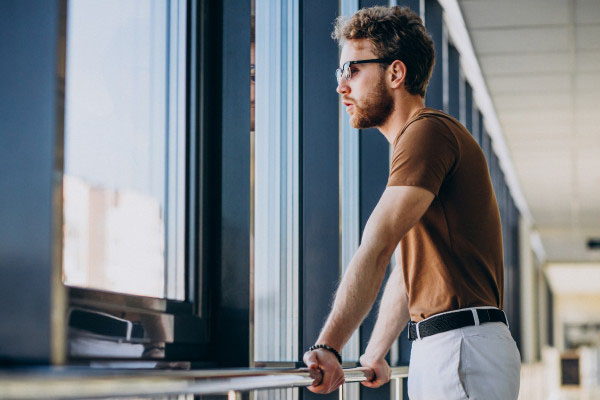
That point that you’re making is so important because I know in my own life that I’ll be at the end of my rope and see seven things to do. I want it done right so I’ll do it myself. That makes the candle burn down faster and depletes me more. Inviting others in is an okay thing to do. Also, as parents, it feels dissonant to say, “I’m going to make a choice to prioritize myself rather than putting the good of the family, the children and everybody else ahead.” It’s not sustainable.
It’s this idea of I should, then they would ask you, “What’s in it?” I remember my mom saying, “You’re so tired all the time.” That’s not helpful because that’s almost making me feel more guilty. This idea of, “Did anyone ever say you should be the person who does everything?” No one ever said that but it’s something that we’re taking on ourselves, “I should have this perfect.” I’m the same way. It’s been difficult for me to ask for help. It’s so liberating and such a gift to other people because it’s difficult for them to see us in distress and we are if we’re managing all that. We have more on our plate than we ever did before, especially people with young children at home. If they’re older or away, we’re still worrying about them.
There’s a fine line between living in our home when they should be respectful of that and fall along with the cleaning, helping, cooking and grocery, which they would be doing totally on their own. I struggle sometimes with what Joelle was saying, “I’ll do it.” If I see clothes on the floor and also between shutting the door and letting them have their room however they want it disgusting or not.
When I come to the point of resentment and I can feel the resentment building, I try not to get there. It’s taken years. It’s almost a gift to have this child back because now I can practice some of these things that I haven’t done in the past, “Would you mind going to the grocery store? These are the things we need.” It’s so true. I do the same thing. I close the door but it’s hard to walk past the door. I know but you have to because you can’t manage that and it’s not even respectful because they’re 22.
I know Alyssa’s boys are out now so she doesn’t have to go through that and live with that. I know when your boys were home you did. How did you handle it, Alyssa? I never asked you.
I didn’t adapt to being an empty nester so well so quickly. For me, it was a gift to get them back much sooner than I had expected. One was graduating college but didn’t have as nice graduation as your daughter did that was so personal and intimate. My son’s college graduation was the graduation that wasn’t so it was a loss there. My other son came back from college and was supposed to come back for the summer and wound up coming back a few months earlier. It was nice for me to have them back and have my nest full again but I recognize that there was this feeling that as good as it was for me, it wasn’t so fabulous for them.
When do you know that you need self-care? What are the moments that you know you need it? Share on XThey were missing out and losing out on things. As Karen was alluding to, I tried to walk this fine line between, “Yes, you’re in the home and we’re going to all contribute to chores and things that needed to get done and being respectful of the fact that you’re your home here and keeping your rooms relatively clean.” Also recognizing that they weren’t supposed to be here at that time. Letting them be as independent as we could under the circumstances. It was also a time when nobody was going anywhere and doing anything. As much as they wanted to get out and be with their friends and socialize, everyone was stuck under the same roof. It was a challenge more for them than it was for me. I was happy to have them here and now they’re back.
Don’t get me wrong. I’m thrilled to have them here. I don’t know if they are.
Alyssa, can I ask you a question? When they went back after being home, what happened when they went back? Did you notice anything? What was that transition like after being home for that many months?
For me or them?
For them and you.
One of them was here until he moved out and now works. He’s living an adult life. Fortunately for me, it’s fairly close by. One went back to college. For both of them, there was a sense of relief to get back to some sense of normalcy. For my college son to be back with his friends. As much as things were different, the college now doesn’t look like it did in 2019, but it’s a sense of relief for more of the social aspects. Though he’s still doing everything academically 99% of it on Zoom, that hasn’t changed. He’s just in a different location but socially it’s been great for him. For me, there is a sense of stress. When your kids get older, you don’t stop worrying about them. I don’t care how old they are.
In addition to always making sure what we had in 2019, their well-being, are they safe, are they doing well, eating, sleeping, being healthy now it’s what’s going on in this pandemic? Where my son is, there are very high infections. I’m worrying if he’s being safe in that regard. There’s all this other stress. Is he thinking college is a big bummer or is college as good as it can be? In the sense of loss that I have for my son who doesn’t have the same college experience as my older son who got out by the skin of his teeth in some sort of normal college experience. It’s one more thing for us parents to stress about.
I get goosebumps listening to you.
One of the things I noticed was I was relieved in some ways having them home. I didn’t have to worry about bullying and her having to go through all of the racial tension that was going on. I didn’t have to worry about her going through that at school. At home, I can control more what she was exposed to in a way but at the same time, how’s that transition going to change once we go back to school again and alleviating those fears of that tension being there still? We’ll cross that bridge when we get there.
Let me say one thing about that, Camille, because this is something that happened that I experienced. This was in the notes of someone’s question. All the focus that has been on the buildings and the plexiglass, all of that was so overwhelming for people who are going back in person for the administrators, the teachers and everyone. I was worried about separation. I was worried that these children have been home for however long and now they’re coming to school. We’re going to have so many separation issues. Teachers are worried they weren’t going to wear their masks.
It astounded me that those kids were running into school. They were so happy to be back and to see their friends, even if they had to wear masks. I’m taking their cues and I’m trying to learn a lot from them. There’s so much good to go back to. Even though it’s not the same, they have this way of seeing it that sometimes is more hopeful than the way we see it because we have this worry. Sometimes we think those things and that’s not what happened. We tend to worry in advance also as parents.
Preparation for the worst.
I want to ask you, Lisa, if our readers would contact you if that’s possible, how can they do that?
I do have a website. It’s called LisaHeroldConsulting.com and my email is Lisa@LisaHeroldConsulting.com.
Will you be giving workshops online to parents or your school?
I do offer parent workshops online. I haven’t authored a lot that are virtual. I should do more of that online. It’s seated and maybe an hour lunch and learn and things like that. I can offer more cool things.
Maybe this will inspire you to do it.
Definitely. I’m seeing everything that’s happening.
I want to thank my Featured Goddesses for being so vulnerable, especially you, Camille, because it’s a challenging time for all of us. To ask these questions, we want all the answers and we want to fix them. What I’m getting out of this mainly is the takeaway of being a goddess of hope and resilience.
Also, not faking it.
We were to end now, do you have three keywords of advice that you could maybe share with our readers?
Since you mentioned hope, I’ll add another one. My words are to have grace with yourself and others, relationships and life skills. Parenting is a long-range project so let’s keep looking ahead. Close that bedroom door. You will get through it. We can do it.
Thank you so much, Lisa, for joining us on the show.
Thank you, Karen and goddesses.
—
Goddesses, welcome to Favorite Things. I know times have been stressful and it’s hard to think about something that brings you happiness right now. We have to do that. We have to be hopeful because if we’re not, where is it going to get us? It doesn’t serve us to not be. If you can focus on something that brings you joy, even if it’s the smallest little thing, it’s important to do that. We’re going to start with Joelle. What did you bring along for your favorite happiness thing?
It’s this new candle that I got in the mail. I created this ritual where when I sit down in front of the computer to work, I need to have a candle lit. I don’t know why. Sometimes I get sick from the smell of it from sitting for hours smelling the scented candle over and over but there’s something that’s calming about being able to look away from my screen momentarily and see this flame flickering. It’s grounding for me. I got this new musk-scented soy candle. I hope I don’t get sick of it because it smells so good. I’m looking forward to firing it up and being bathed in something grounding and calming while I work in front of the computer.
Lisa, we talk a lot about smells, different lotions and creams. It’s funny that you said that, Joelle, because I came across scented candles that were the scents of whiskey and cabernet. I was like, “I need one of those.” If you have too much to drink, you’re like, “Just light the candle instead.” I’ll send you one. Alyssa, what did you bring?
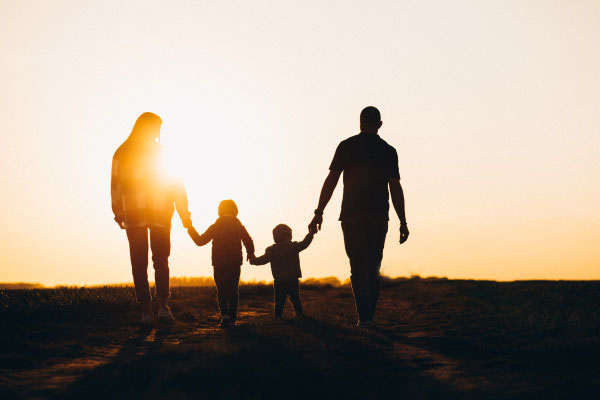
I know we try hard on this show, sometimes with great difficulty to not get political but we are taping this episode on November 8th, 2020. To hell with that. I’m throwing caution to the wind. My favorite thing is the sense of joy that we are seeing around at least half of the people who live in this country. My favorite thing is our new Vice President-elect Kamala Harris. To me, she has been incredibly inspiring. Not only because in 2020, she’s only the fourth woman to make it onto a major party presidential ticket which still seems astounding. The first to find herself in the White House.
She’s inspiring to me and she said some things that I thought were incredible. While we’re talking about children, I’m going to read this quote because this is truly what’s bringing me joy and happiness now. She said, “While I may be the first woman in this office, I will not be the last because every little girl watching tonight sees that this is a country of possibilities. To the children of our country, regardless of your gender, our country has sent you a clear message. Dream with ambition, lead with conviction and see yourself in a way that others might not see you simply because they’ve never seen it before. We will applaud you every step of the way.” That’s what’s giving me joy and happiness. Therefore, she is my favorite thing.
She is an incredible role model as educators when we talk about remote learning, and now Jill Biden. They’re incredible role models to our children as teachers, as parents, and Kamala, to be that positive role model is so important. I am pleased with that as well. Not to get political because I respect everyone’s opinion of what they choose.
I can’t imagine that education is not going to be one of Dr. Jill Biden’s initiatives.
Maybe helping with remote learning. Lisa, maybe you can reach out to her. You never know. She could be reading. Jill and Kamala, if you’re reading, come join us on the goddesses. Camille, what would you like to say?
I felt bad knowing that Alyssa would always bring on these wonderful skincare products and I used to be an aesthetician. I should be bringing on the secret weapons that I use as my favorite thing. I brought my eye kit. Anytime I cry, my eyes swell. This has been my little thing. I do lymphatic drainage with it. It vibrates and it makes all the eye creams go even deeper. I have the face ones. I can do all of that too. At night or mid–day naps, if you’re able to have it just five-second or something. I have an eye pillow as well that’s satin that my mom made for me. It’s my little eye kit. For allergies as well, my eyes will swell up. This is my secret weapon for those late nights work when we were all doom scrolling which will now be over, hopefully.
The first two, what are they called?
This is Eyeonix by Nurse Jamie. My best friend sent this to me, Jeremy. This is the TriAngle Facial Beauty tool. I’m sure there are several different options out there.
That looks like a gua sha.
It is but it’s vibrating and there are different options. You can have it normal or heated.
You have beautiful and radiant skin.
Thank you. My birthday is coming up. All the anti-aging that I can slather on, I’m doing it.
Thank you for sharing that. My favorite thing is still happening in my family and now that my daughters are home, we’re relaunching it. We’re bringing it back to the Pulver household. When the kids were little, we would say at dinner, what are your highs and your lows. We’d go around the table and some people say, “Your roses and your thorns are different things.” Sometimes you could say pass if you didn’t feel like talking but they always seem to say something positive and a lot of negative. We would always try and say, “Let’s try something more positive. Let’s try some more highs.” Now that my girls are home, we’re doing it again.
It’s interesting to see what they’re saying and how it’s changed over the years. It’s been great because sometimes you even say, “I had a great walk today with you. I had a great cup of coffee.” Something small like that is still something to be grateful for. It helps you to have a brighter day to reflect on your day and to look forward to tomorrow. When there’s a low, to listen to each other and to feel like, “That did suck,” to validate. A low could be something small like my charger wasn’t in the room and that threw me off or I didn’t have a good cup of coffee or something big like, “I bombed on a test,” but to support each other. I encourage our readers to try that with your spouse or with your children. Lisa, what did you bring along?
We are resilient because we find a way not to burn out. Share on XI brought this little book called The Daily Mood. I have a little story about it. I gave this to all of my children for Christmas 2019 and they left it at home. None of them wanted to take it. When the pandemic happened and went back, I tried again. I said, “You may not have a daily mood. Your mood may change every five minutes or every hour.” I was able to take one. I sent one to my son who’s in Washington State and said to him one day, “What’s on your flip chart?” He sent me a picture of something positive and I was thinking, “He must be stressed or something,” but it wasn’t. It was something like a rocket. He asked me, “What’s on yours, mom?” I thought that was interesting because I hadn’t checked in on mine that day. I said, “I should get one of those in the drawer out for myself.” A little reminder that everyone has all these things that they go through. It’s cute.
Do you turn to it to describe your mood or do you flip it each day?
For instance, this one says peckish. I don’t even know what peckish is. It says, “Somewhat hungry.” You can say, “He was peckish. He ate part of my sweater.” It’s a cute little fun way.
Is hangry in there?
It should be. There’s wonky. There’s a lot of them.
That’s so cool. Where can people get that?
I think you can get them almost in any place now like bookstores.
I love your gratitude wall. Here on Grateful Goddesses, we have a gratitude jar that we fill up. On GGTV, people tell me what they’re grateful for. I’ll end by reaching in and seeing what someone is grateful for. I don’t know who these are from but the people who were on the show and the readers. Someone is grateful for learning from their sickness. That’s quite interesting. I’ll do one more. Someone is grateful for thunderstorms. It’s interesting to see what people are grateful for. Some people don’t like thunderstorms yet some people are grateful. It’s a good reminder to flip, change, and look into our moods and be hopeful. Thank you so much again, Lisa, for joining us on favorite things for Grateful Goddesses. Everyone, have a great, hopeful and resilient day.
Thank you.
Important Links:
About Lisa Herold
 Lisa Herold is a Certified Positive Discipline Trainer and Empowering People in the Workplace Facilitator who provides leadership training and consultation to schools, homes, and businesses. Over the past 25 years, she has taught at the primary, intermediate, and middle school levels in both public and private settings. Lisa served as Director of Parent Engagement and Positive Discipline at Saint Clement School in Chicago, where she was a member of the Leadership Team.
Lisa Herold is a Certified Positive Discipline Trainer and Empowering People in the Workplace Facilitator who provides leadership training and consultation to schools, homes, and businesses. Over the past 25 years, she has taught at the primary, intermediate, and middle school levels in both public and private settings. Lisa served as Director of Parent Engagement and Positive Discipline at Saint Clement School in Chicago, where she was a member of the Leadership Team.
Her mission is to engage parents and teachers in the discovery of their unique path to connect with children, thereby empowering children to develop key life skills, values, and 21st-century leadership competencies, which provide the foundation for success in school, meaningful employment, engaged citizenship and happy family life.
Love the show? Subscribe, rate, review, and share!

